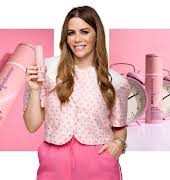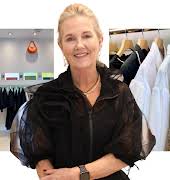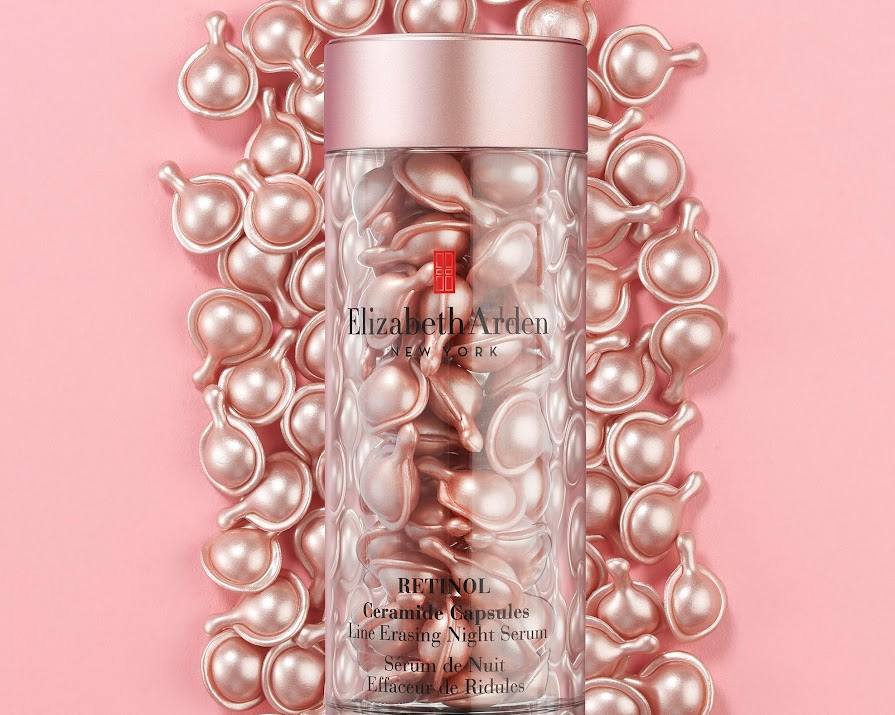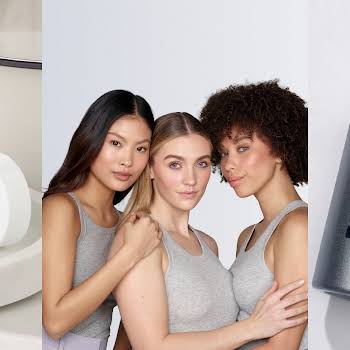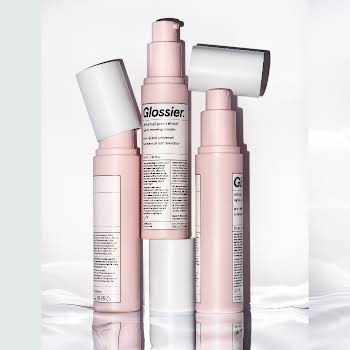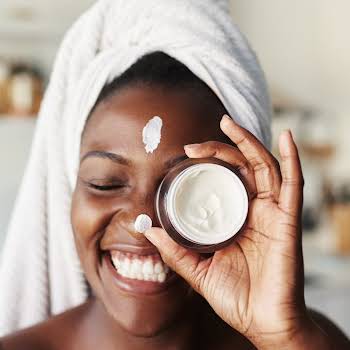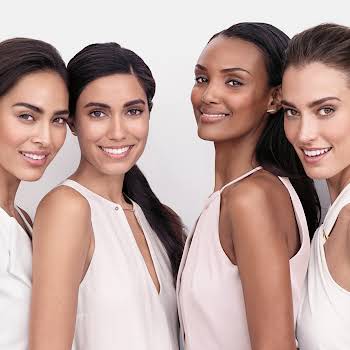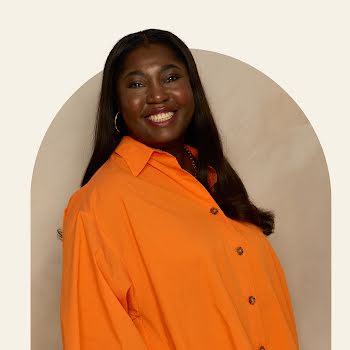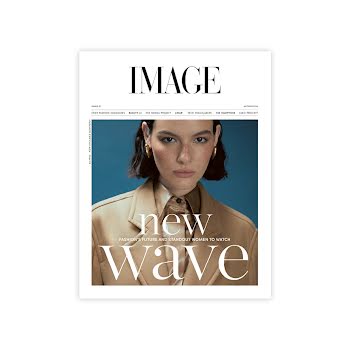Thinking of using retinol for the first time? Here’s everything you need to know
By Holly O'Neill
03rd Jul 2020
03rd Jul 2020
Your ultimate retinol cheat sheet
Ready to get started on your retinol journey? With such an active ingredient, it’s best to take advice from the pros. Registered nurses and co-owners of Renew Aesthetic Clinics, Sinead Gallagher and Jeanette Dunne break down everything to know about using retinol.
Related: What is hyaluronic acid?
Where does retinol come from?
Retinol is a derivative of vitamin A and is used to revitalise the skin.
Is it known by any other name?
There are different types of retinols and many different products that contain retinol. Retinyl palmitate, retinol, retinaldehyde, adapalene, tretinoin, isotretinoin, and tazarotene are all various forms of retinol, which in turn are various forms of vitamin A.
What are the benefits of using it?
Retinol is the gold standard ingredient when it comes to reversing the signs of ageing. It has the power to increase cell turnover therefore aiding skin renewal so it reduces the appearance of wrinkles and fine lines. Retinol targets skin discolouration and breaks up existing pigment and brightens and allows for a more even skin tone.
How does it work in the skin?
Retinol works to increase cell turnover, stimulate collagen and elastin production, fade hyperpigmentation and helps the skin stay hydrated. As we age our skin cell turnover slows down and by using retinol it encourages a healthy turnover. Retinol can treat and prevent everything from stubborn cystic acne and eczema to sun-induced wrinkles and dark spots.
Who should use it?
At the average age of 27 we start to see the signs of ageing and early signs of sun-damage start to show on the skin. The skin starts to lose elasticity and the free radical damage of pollution, ageing and sun damage start to show. Like everything, prevention is better than cure but it is never too late to start using retinol. We would recommend starting to add retinol to your regimen in your late 20s and from there on. As there are many different forms of retinol and different strengths, if you add retinol into your regime later in the ageing process it is important that you use a higher strength, i.e. 1% in order to reverse the signs of ageing.
Should anyone not use it?
Retinol is an extremely powerful ingredient and many people do find it difficult to tolerate. Luckily, there are many new, more innovative forms of retinol on the market and how it is used is vital to the reactions that may occur. You should only use retinol at night-time, using very sparingly initially, once or twice a week, and gradually build up the frequency in which it is applied. Always follow the instructions given by your healthcare professional where you purchase it and, if you are concerned, contact them to get advice on the application. You should never use retinol if you are pregnant as vitamin A is highly detrimental to a developing foetus and if you have any skin conditions like psoriasis or eczema you would need to consult your doctor before use. It is also very important that you wear SPF 30+ when you are using retinol.
Related: Everything to know about salicylic acid
Where does it come in your skincare routine?
When it comes to how to use retinol, use only at night. Follow these easy steps – cleanse, then apply retinol remembering that a little goes a long way. I know we’re all tempted sometimes to cake on the product, with the hopes that more product will equal better results. With retinol, that couldn’t be further from the truth. All you need is a pea-size amount to use over your entire face. Use it according to the instructions given and start slowly by using it once or twice a week. SPF the following morning is key as it can cause light sensitivity.
Is there anything it shouldn’t be mixed with?
As retinol can cause dryness and flakiness on the skin, you should use other active ingredients with care such as alpha hydroxy acids and if you experience any sensitivity you should pull back on using active ingredients. Also, if you have active acne and are using benzoyl peroxide to spot treat, you should only use one or the other, not both together as it will cause too much reaction. Most people experience dry, flaky, and peeling skin when used together. Retinol should be used cautiously.
Is there anything to look out for when shopping for retinol?
When buying retinol it’s important to know the % of retinol you are been sold as some people can get more severe reactions than others. Most over the counter retinols have a very low % of retinol and therefore won’t be very effective so when purchasing it is much better to get advice from a nurse or a doctor so they can prescribe a higher % and the best option for your skin type and explain how to use the product correctly. Encapsulated retinol will be slowly released into the skin avoiding the intense redness, dryness and peeling associated with retinol in its raw form, like Image MD. It is only used at night time. Don’t go mad using it every night, build up slowly. It will make your skin sun-sensitive so a good physical SPF every day is vital. It will cause more reaction around areas that have thin skin like the eyes and neck so be careful. Good quality retinol will show signs of improvement in your skin in about a week.
IMAGE Top Picks

Elizabeth Arden Retinol Ceramide Capsules Line Erasing Night Serum, 60 capsules for €90
What is it?
Encapsulated retinol equals no exposure to light and air meaning the potency of your retinol is preserved. The retinol in these capsules was found to be 76% more potent than its non- encapsulated equivalents.
What’s in it?
Wrinkle-smoothing peptides, moisture-barrier reinforcing ceramides, moisturising emollients plus retinol work hard to give you all the benefits of retinol with the added bonus of protecting against the dryness associated with it.

Image Skincare Ageless Total Overnight Retinol Masque, €89
What is it?
An overnight retinol mask to be used a couple of times a week in a thin layer that releases hydration for less irritation.
What’s in it?
Marine collagen releases hydration continuously and the skin is protected against free radicals. Inflammation and oxidative stress is controlled and we’re giving bonus points for triple action time-released retinol.
Juliette Armand Retinoid C Serum, €39
What is it?
A powerful antioxidant serum that protects from free radicals while stimulating the cellular regeneration of the skin.
What’s in it?
Two powerful active ingredients that everyone should have in their skincare routine — vitamin A plus vitamin C.
Photography by Elizabeth Arden.
Have a skincare question or ingredient you’d like explained? Email your suggestions here.
Read more: ‘Each case is unique’: An expert’s guide to combating chronic acne
Read more: What is salicylic acid and do I need it in my skincare routine?
Read more: Rosie Huntington-Whiteley shares her €837 make-up routine






